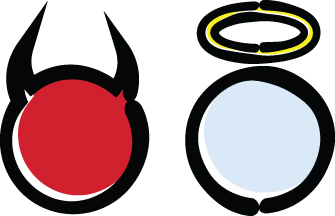Question
 Is Human Nature Good or Evil?
Is Human Nature Good or Evil?
Whether human beings are naturally good or naturally evil is an age-old debate, and how people answer this question has influenced their ideas about government. Those who believe that a(n) (1) toward evil is inborn and immutable tend to think that a government must be (2): strong, with laws that are strict and strictly enforced. They don't see themselves as misanthropes, but as realists who know that people are basically devious and corrupt. Under a weak government, they argue, (3) will result: Humanity will, on the whole, behave viciously and brutally.
In contrast are those who believe that human beings are born good and would remain good if powerful governments did not (4) their freedom. They argue that when a government crushes freedom, it also subjugates basic human decency, and therefore all governments should contract, with just a bare minimum of rules to keep things running smoothly. One extreme view actually favors (5): no government and no laws. Anarchists are often accused of recommending chaotic (6), or at best of being (7) idealists. They respond, though, that the effect would be (8), resulting in a healthy society.
The debate remains unsettled. Not surprisingly, evidence favoring total absence of government is (9), since societies see it as risky; and few of them, if any, have had the (10) to try it. But the human experience with all-powerful governments—from the tyrants of centuries past to the dictatorships of our own time—has not been encouraging. As in so many disputes, we may feel that the most sagacious decision is to take a middle ground.
Photo Credit: marimedi/Shutterstock.com